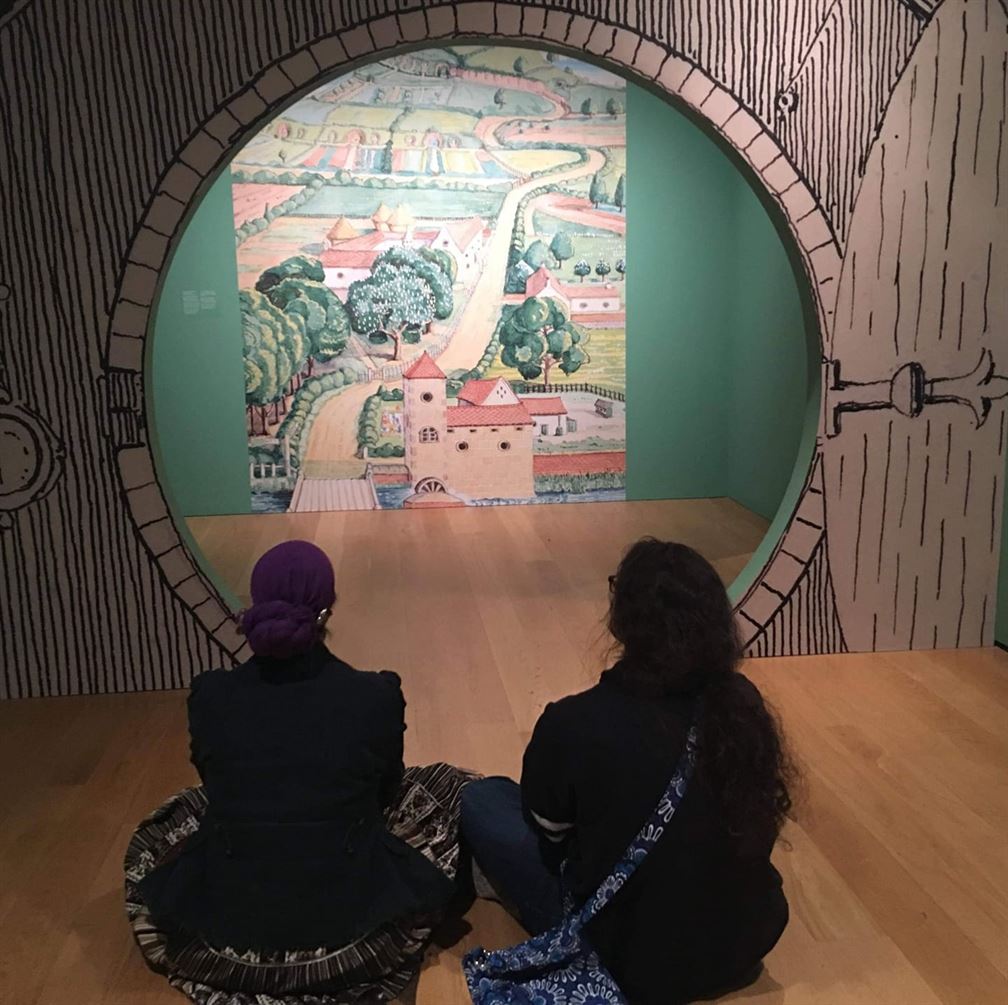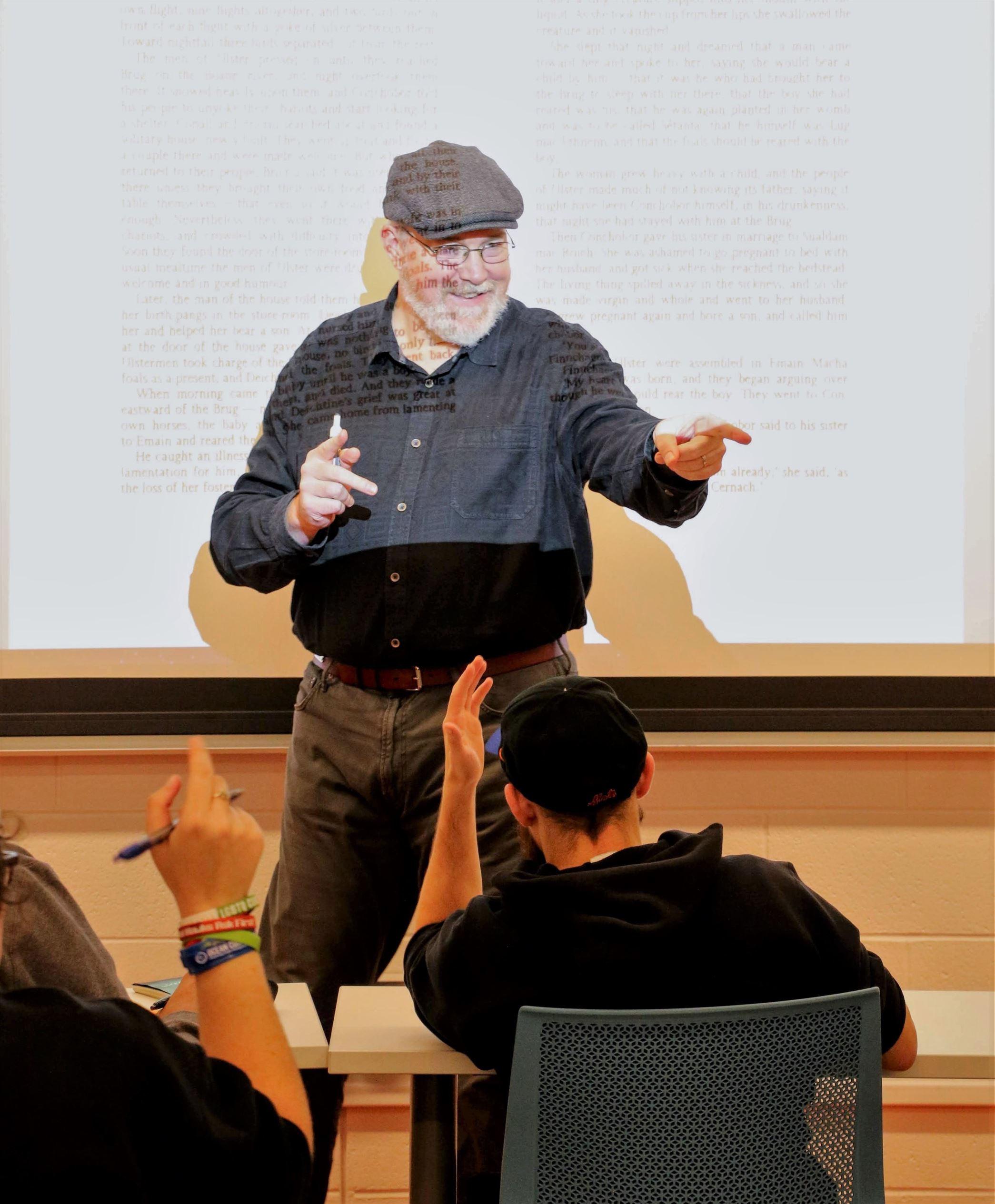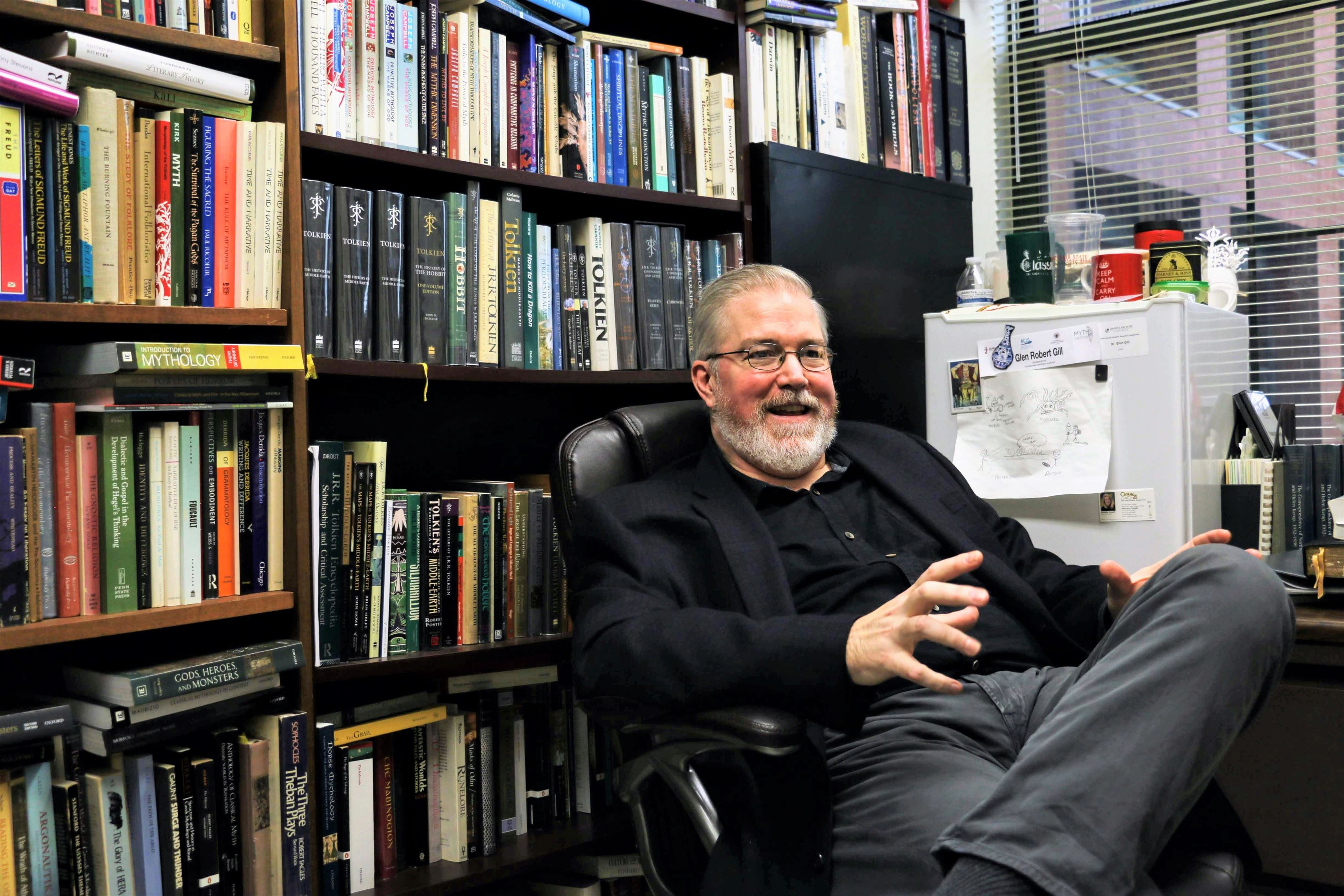It can be hard finding an engaging or entertaining class in the array of options Montclair State University offers. Sometimes a student might just take a course because they have to, or because they think they won’t hate it is much as their other options.
The light at the end of the tunnel for many may prove to be the Department of Classics and Humanities’ course on J.R.R. Tolkien, which is coming up on its tenth year of existence.
This course is taught by Montclair State’s own mythology specialist, Dr. Glen Robert Gill. Gill is an associate professor of humanities and the coordinator of the university’s mythology program. Gill has also published academic work on Tolkien. The Lord of the Rings was the first book he taught in grad school and Gill was eager to teach it at Montclair State.
“When I got here and was asked to coordinate the mythology program, it was obvious for me to include Tolkien,” Gill said. “It is one of the best examples of modern myth.”
The Tolkien course has always been popular. It resonates with fans of the books and movies alike. Those who have only seen the movies discover the true genius behind his stories and book lovers get a reinforced understanding of how rich Tolkien’s texts truly are.
Dr. Gill explained just how popular the course is.
“The first time I taught [the Tolkien course], it filled up in four hours,” Gill said. “It is capped at 35, but we may raise it if there is more interest.”
If the numbers are not persuasive enough to show the course’s popularity, both former and current students of the course have nothing but positive things to say.
Veronica Furman, a Montclair State alumna, took the Tolkien course while she attended Montclair State. She originally had little interest in Tolkien
“This is a subject from which I was most removed from originally,” Furman said.

Tolkien, the focus of Dr. Gill’s course, sits in his study. Photo courtesy of Haywood Magee / Getty Images.
However, after taking Gill’s course, Furman was able to apply this course to her own life.
“Knowing what I learned from [Tolkien’s] bio and linguistic detail… I know that it’s something to aspire to,” Furman said.
Furman is a writer and she utilizes what she learned in the Tolkien course to be conscious about what influences her works and what she puts into it.
It is not just former students that rave about the course. Ruben Harikrishnan, a senior biology major and mythology minor, is excited to take the Tolkien course.
“I’ve never read any of these books,” Harikrishnan said. “Through Dr. Gill I’ve learned to appreciate myth and the influence it has on media. What better way to introduce myself to this?”
Sam Thomson, a junior anthropology major and mythology and archeology minor, has the same mythic curiosity as Harikrishnan.
“As someone who has only watched the movies, I would love to see the stories in [the] perspective of myth,” Thomson said.
For some, it may seem pointless to take the Tolkien course. It doesn’t always fall under course requirements, and society is currently pushing students towards the STEM subjects.
“Of course math is important but there is a place for creativity and the human imagination,” Gill said. “Some people want to build a bridge, Tolkien built a world.”
It is also worth mentioning that The Lord of the Rings has symbolism of conservation and the importance it places on the environment that would make any sustainability student proud.

Students were able to admire Tolkien’s drawing of the Shire on their trip to the Morgan Library. Photo courtesy of Beth Gill.
Last semester, almost as a show of loyalty, former students from the Tolkien course took a group trip to the Morgan Library in New York City for a private tour of a Tolkien exhibit. The collection featured some of Tolkien’s own drawings, early drafts of the “One Ring’s inscription” and so much more.
It may be hard for some people to see how Tolkien can be considered mythology. It is certainly under the genre of high fantasy, but it can sometimes be hard to spot the ways such stories are the descendants of myth.
“Tolkien actually said he was producing a mythology,” Gill said. “Tolkien made a series of myths for an England that had lost touch with, and actually lost, its mythology. It’s more modern, obviously, but it’s just as intricate and coherent as an ancient mythology.”
With spring registration just around the corner on Nov. 6, it is certainly worth considering taking this course for an in-depth look into Middle Earth. Lectures will be on Tuesday evenings from 5:30 p.m. to 8 p.m.
“I would say you don’t have to be a fan of Tolkien to take this course,” Furman said. “Taking a class that thoroughly examines [Tolkien’s works] will not take the magic out of it, but enhance it.”
If you are interested in this course, you can contact Gill at gillg@montclair.edu.




